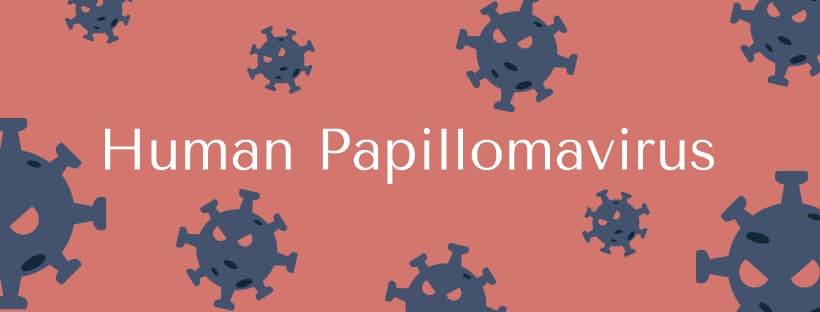In the past, chickenpox, measles, polio and many other infectious diseases have affected millions worldwide. However, the number of cases has significantly declined after science found vaccines for these diseases and mass vaccinations were promoted. During vaccination, weakened or killed germs are administered that trigger an immune response in the body. This process strengthens your immune system training it to create antibodies against the virus. Thus, your body is prepared to protect you against those specific infections before you get exposed to them.
Some viruses like human papillomavirus and hepatitis B virus can cause cancers. Human papillomavirus (HPV) is the major cause of cervical cancer, the second most common cancer affecting women in India after breast cancer. There are more than 100 types of HPV. Two of those—HPV 16 and HPV 18 are high-risk HPV types and are known to cause most cancers, including cervical, anal, vaginal, vulvar, penile and throat cancers. Not many are aware that vaccines are available to prevent the cancers caused by these HPV strains.
Are there vaccines that can prevent cancer?
Although you cannot prevent all cancers, you can reduce the risk of getting them with regular screenings and crucial lifestyle interventions. However, it is possible to prevent yourself from cancers caused due to the human papillomavirus with the HPV vaccine. Similar to other immunizations, this safe and highly effective vaccine helps the immune system build antibodies that can fight against most human papillomavirus strains. Hence, it promises 95% efficacy in preventing cervical cancer.
Are cancer vaccines recommended?
People having an HPV infection are highly susceptible to developing cancer. If you get the HPV vaccine before getting exposed to the virus, you can prevent yourself from cancers caused by HPV. Therefore, it is recommended to take the vaccine between the age group of 9-26 years. In India, the vaccine can be taken up to 45 years of age, but only after getting approval from your healthcare provider. Anyone above 45 years may not be eligible for the vaccine as it has not proven beneficial for older age groups.
However, you must avoid the HPV vaccine if:
- You are pregnant
- You are moderately or severely ill
- You have severe allergies, including an allergy to yeast and latex
- You have had life-threatening allergic reactions to any component of the vaccine or a previous dose of the HPV vaccine
How do I know if I am eligible for the cancer vaccine? Many determining factors can decide your eligibility for the vaccine.
Age: Your age does make a difference in the effectiveness of the HPV vaccine.
- 9-14 years: The HPV vaccine is most effective for boys and girls in this age group.
- 15-26 years: If you haven’t been vaccinated as a child, it is still ideal to get the vaccine by 26 years.
- Up to 45 years: In 2008, the National Technical Advisory Group on Immunisation (NTAGI) approved the age limit to be increased to 45 years. However, if you are older than 26 years, it is recommended to meet with your healthcare provider to learn about the pros and cons of the HPV vaccination before getting it.
- Above 45 years: The HPV vaccine is generally not administered to individuals above 45 years as there are no proven benefits of it at that age.
Gender: Your gender does not matter for taking the HPV vaccine. Men, women and individuals of all other genders can protect themselves against this virus and significantly lower their risk of cancers caused by it.
Sexuality: Women who have sex with women can get an HPV infection too. Hence, it is recommended they get vaccinated too. Men who have sex with men are at a higher risk of anal cancer. Preventing yourself from HPV can help eliminate this risk and reduce cancer cases overall.
Relationship status: It is ideal to get vaccinated against HPV when you are not sexually active, as the virus is commonly transferred by having vaginal, anal, or oral sex with someone with the virus. So, taking it before you become sexually active ensures there has been no sexual transmission of the virus. However, if you are already sexually active, you and your partner can still get the vaccine. Although the HPV vaccine cannot treat an existing HPV infection, it can prevent you from the ones you are not exposed to already.
What else can I do to prevent myself from cancer?
Cancer prevention includes being aware of your choices, adopting healthy lifestyle habits and prioritising your health at the right time.
Quit tobacco: It is well-known that tobacco in all forms, including secondhand smoke, is linked to many cancers. Quitting it may be hard, but hugely beneficial for your health in the long run.
Limit alcohol consumption: Regular and excess consumption of alcohol increases your risk of cancer apart from causing various chronic diseases. Talk to your healthcare provider about the amount of alcohol that is safe for you to drink.
Eat a healthy diet: Have a balanced diet with plenty of plant sources, including fruits, vegetables, whole grains, and more. Avoid refined, junk and oily foods; and heavily processed foods and meats.
Maintain a healthy weight: Obesity is one of the major causes of many cancers. Eating healthy and being physically active can help you stay fit.
Protect yourself from the sun: You can prevent skin cancers if you protect yourself from the UV radiation of the sun.
Get vaccinated: Human papillomavirus (HPV) is the most common sexually transmitted infection (STI) that, if left untreated, can develop into genital warts and cancer. One of the most effective ways to prevent it is getting the HPV vaccine between 9-45 years of age.
Adopt safe sex practices: Having unprotected sex puts you at risk of contracting HPV and other STIs. Hence, you must always use condoms for oral, vaginal or anal sex, as that is the only way you can protect yourself from STIs.
Go for regular health checkups: Most of us go for a health checkup when we notice new symptoms in the body. However, to prevent any serious issues such as cancer, it is better to go for annual health checkups and be in sync with your health.
Start screening tests: A few screening tests have shown to reduce cancer deaths, such as mammography, pap tests and HPV testing. Talk to your healthcare provider to understand when to start these tests and their frequency.
Conclusion
Cancer prevention is still developing, but following the existing prevention tips can significantly reduce your cancer risk if not eliminate it completely. Healthy lifestyle choices, vaccination, and screening tests are simple ways to prevent cancer.
Disclaimer: This information is educational and should not be construed as medical advice. Please consult your doctor before making any dietary changes or adding supplements.
Proactive For Her is a digital clinic for women, offering accessible, personalised, and confidential healthcare solutions. We offer outpatient care, diagnostic services and programs for various health concerns of Indian women, across their lifetime - from puberty to pregnancy to menopause.

